What Is Gambling Addiction?
Gambling addiction is a condition in which someone feels compelled to gamble and cannot stop themselves from doing so. This compulsion can lead to problems with finances, relationships, and other areas of life.
Gambling is defined as the act of playing games of chance for money. Most forms of gambling are legal and regulated by governments to prevent cheating or fraud.
There are many types of gambling, but they all have one thing in common: when you gamble, you want to win. You feel that if you win, you will get rich and happy. But if you lose – then it’s not so bad after all because there’s always another chance next time.
Types of Gambling Addiction
There are many stages of gambling addiction. Some people who play games of chance and poker may be considered problem gamblers, while others have a more severe form of the condition. The three main levels of gambling addiction include:
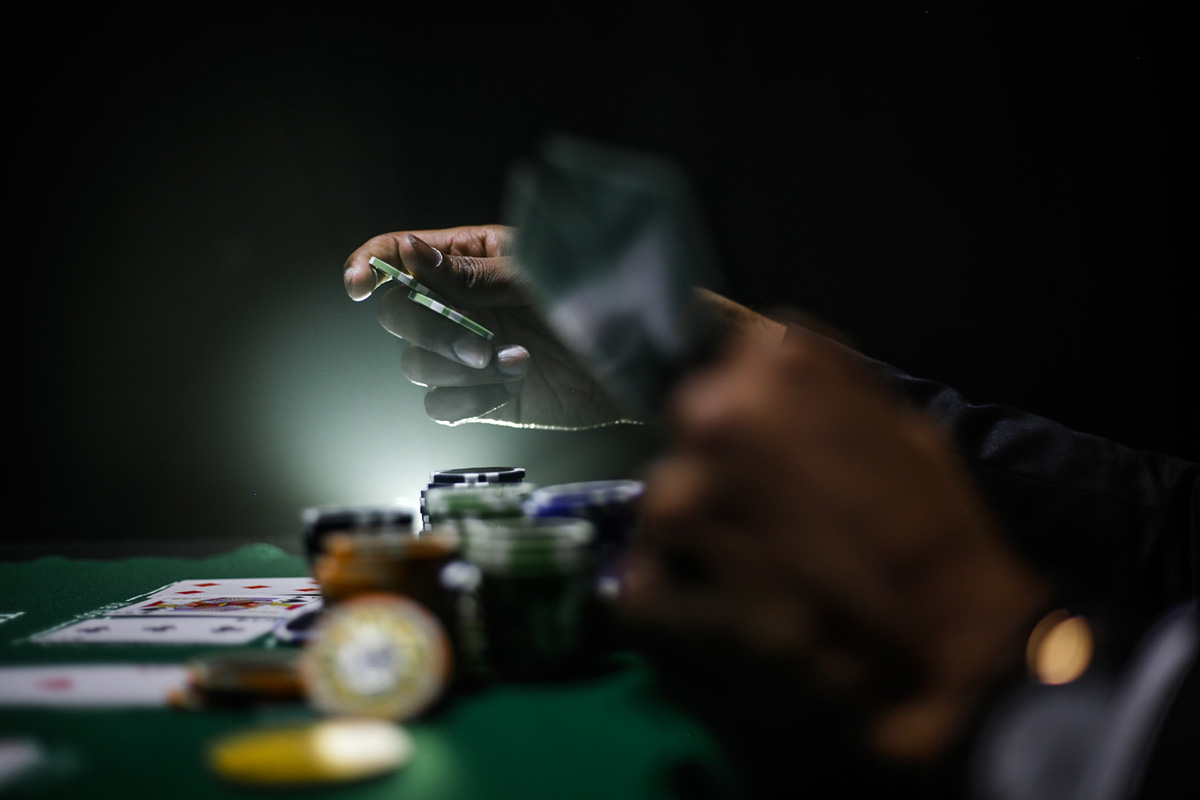
Compulsive Gambling
When gambling becomes a compulsive behavior, it’s called Compulsive Gambling. Compulsive gambling is a form of gambling addiction characterized by uncontrollable urges to gamble despite negative consequences or harm caused by the behavior. Compulsive gamblers may also experience withdrawal symptoms if they abstain from gambling for long periods.
Binge Gambling
Binge gambling is a type of compulsive gambling where people have short periods of intense gambling activity followed by long periods of abstinence or only low-risk gambling.
Binge gambling happens when someone goes on a gambling spree and loses control. Binge gamblers often gamble large amounts of money in short periods, which can lead to financial problems and debt if they don’t seek help.
For example, someone may go to Las Vegas and gamble all night long and lose $1,000 in one night; then they go home and don’t gamble again for several months or years.
Problem Gambling
Problem gambling refers to the inability to control one’s impulse to gamble despite negative consequences such as losing money, damaging personal relationships, or experiencing emotional distress.
Problem gamblers often experience guilt after a binge. However, this can be overcome by planning with friends or family members who will help them avoid going back into debt by giving them cash or paying off their debts so that they don’t feel like they have any other choice.
Online Gambling Addiction
Online gambling addiction is a condition that occurs when someone has an inappropriate compulsion to gamble with real money through the use of computers or other electronic devices. It is a serious problem that can lead to financial ruin and even imprisonment.
The fact is, online casinos in Kuwait are a lot more exciting and engaging than their brick and mortar counterparts. But the most important difference between the two types of gambling addiction is the potential to become trapped in an endless cycle of allowing yourself to play some more, or what is referred to as an infinite loop.
The accessibility of online gambling sites, the 24/7 availability of gambling with your internet connection, and the ease of creating electronic funds makes you more vulnerable to the addiction.
Myths and Facts about Gambling Addiction
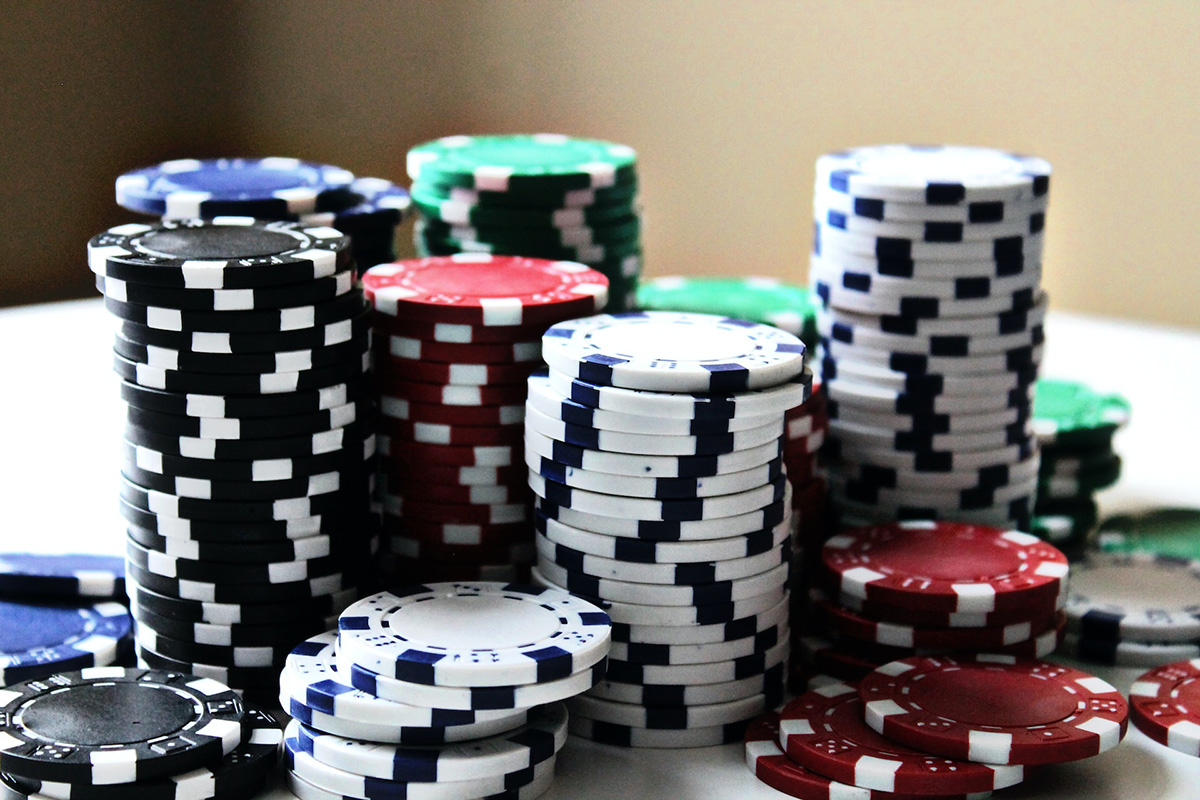
| Myth ❌ | Fact ✔️ |
|---|---|
| Gambling addiction only impacts gamblers themselves — it doesn’t affect their families or friends. | Gambling addiction affects everyone in the family — especially children — and can lead to divorce, child abuse and neglect, bankruptcy, and even suicide. |
| If you gamble regularly, it won’t become a problem for you. | Gambling can become an addiction for anyone at any time. It doesn’t matter if you’ve been doing it for years or just started recently—anyone can get addicted at any point in their life. |
| Only young people get addicted to gambling; older people don’t have this problem because they know better than to do it in the first place. | People of all ages can become addicted to gambling, and older people are susceptible too. |
| Gambling Addicts are bad people and criminals. | Most gambling addicts are good people who just have a problem with gambling. |
| Gambling is only a problem if people lose money. | The reality is that there are people who win money at gambling and still get addicted to it. The thrill of winning has the same effect on the brain as the rush from drugs or alcohol. Research shows that some gamblers experience withdrawal symptoms when they stop playing—just like with other addictions. |
| Gambling addiction only affects adults. | This is false—gambling addiction can affect anyone, even children and teens. |
| Gambling addiction is not an actual medical condition. | Gambling addiction is a recognized disorder under the DSM-5 (Diagnostic and Statistical Manual of Mental Disorders). It’s also been recognized by the World Health Organization as a mental health disorder. |
| A person can’t be addicted to gambling if they only gamble occasionally. | Gambling addiction doesn’t differ from other addictions in terms of how often you gamble or how much money you spend—it’s all about how much control over the gambling behavior. A person who gambles occasionally may still become addicted if they find themselves unable to stop gambling even though it causes them problems in their life. |
| Online gambling is more addictive than land-based casino gambling. | Online is more addictive than land-based casino gambling because it is available 24/7 and on the go. It is difficult to control addiction if you can access these sites on the go via a mobile device or computer. |
What Causes Gambling Addiction?
Gambling addiction is a complex phenomenon, with many factors contributing to its development. The following are some psychological, social, and biological causes of gambling addiction:
Biological Factors
The brain is the most important organ in our bodies and controls almost everything we do. Some people have brains that are more susceptible to developing an addiction than others do—something known as “predisposition.” This predisposition could be related to genetics or other biological factors
One theory is that compulsive gamblers are genetically predisposed to developing an addiction. According to this theory, certain people may be born with brain chemistry that makes them more vulnerable to becoming addicted to gambling.
Another theory focuses on the relationship between dopamine levels and gambling addiction. Dopamine is a neurotransmitter that plays an important role in regulating reward-seeking behavior by activating pleasure centers in our brains.
Compulsive gamblers may have lower dopamine levels than non-compulsive gamblers, which can lead them to become addicted to gambling because they’re seeking out rewards through risky behaviors like taking chances with money or playing games of chance at casinos or online casinos.
Biological factors are even more rampant in online gambling, one accesses the gambling platform and the payment methods 24/7, at the palms of their hands. Once you develop an addiction to taking massive risks, you do not hesitate to press those passwords to transfer money from your online accounts to betting accounts, regardless of whether you win the bets or not.
Psychological Factors
Many gamblers believe they have more control over their gambling than they do. While some people are naturally more risk-averse, others tend to overestimate their ability to make correct decisions and underestimate the risk of losing money.
The most common psychological factor that leads people to become addicted to online gambling is impulsivity. Impulsivity refers to a tendency to act on impulse without considering consequences.
This means that someone impulsive might make rash decisions about things like career choices or relationships without thinking about the possible outcomes.
When it comes to gambling, impulsivity often leads people to bet more than they can afford because they don’t think about the consequences of losing money.
Impulsivity is a danger in online gambling because of the accessibility and convenience gamblers have. You only need to press a few buttons to gamble online. It is worse because you do not think of the consequences; all you have in mind is the winning possibility, even if you have to suspend all other duties.
Social Factors
Gambling addiction can also be caused by social factors, including peer pressure and stress from work or home life.
For example, if you’re surrounded by friends who gamble online regularly or your employer requires you to work long hours without offering any compensation for overtime pay, your chances of developing an addiction are higher than average.
This is because these situations may increase your stress levels or give you less time for activities such as relaxation and exercise that help keep stress levels down.
In online platforms, peer pressure is something you only escape by limiting interaction with your gambling friends. You cannot block your friends from gambling on their phones, but you can definitely control him many times you want to see them do that. If it lures you to gamble, then you must find a way to avoid such groups.
What Are the Signs of Gambling Addiction in Adults?
Gambling addiction is a serious problem that can have devastating consequences for the gambler and their family.
If you’re worried about someone you know, it’s important to be able to recognize the signs of gambling addiction. This can help you identify when they are in trouble and allow you to help them get treatment before they make things worse.
Signs of Gambling Addiction in Adults
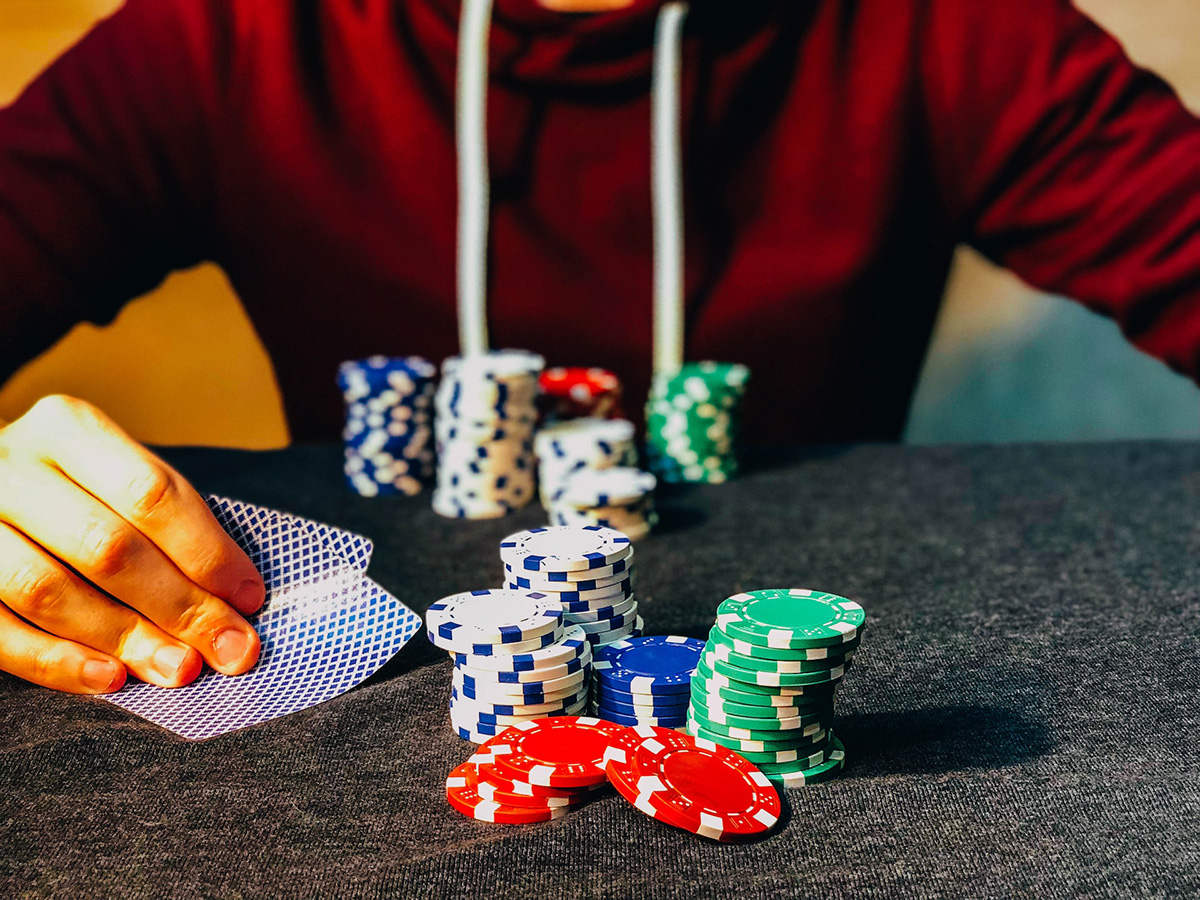
While not everyone who gambles will become addicted, some people find themselves unable to control their urges around gambling. If you notice any of these signs, it may be time for your loved one to seek help:
- You’ve been spending more time playing games or going to casinos than doing other activities you enjoy.
- You’ve borrowed money from family or friends to pay for gambling-related expenses such as airfare or hotel rooms for casino visits.
- Your finances are out of control because of your gambling habits — you’re unable to pay bills or rent on time because of your losses at the casinos or online gaming sites; credit cards are maxed out. There’s no money left after paying off monthly debts, etcetera).
- You feel guilty after gambling but continue doing it anyway.
- Lying about how much money they’re spending on gambling activities.
- You feel depressed when you stop gambling for a while because it feels too dull without it.
- You are preoccupied with gambling, even when you’re not at a casino or playing poker.
- You’ve lost large amounts of money due to gambling-related activities and continue to gamble despite knowing how much damage this is causing in your life.
- Neglecting responsibilities such as paying bills or taking care of your children because you are too focused on their latest bets.
How to Prevent Gambling Addiction
Gambling is a fun way to spend your time but can also be a dangerous addiction.

Budget for Each Session
Set a money limit before gambling. If you limit how much you’re allowed to lose, you’ll be able to keep yourself from spending too much money on the game.
If you have a problem controlling how frequently you access your mobile or online banking platform then it would be best to do away with them.

Have a Time Limits
Set a time limit on your gambling. You should also set a time limit on how long you play each day. This will help prevent you from getting too involved with the game and losing track of time.
If you have an online gambling addiction we recommend that you control your access to such sites. You can even switch off the internet until your schedule allows you to bet.

Don’t Turn It into Money Making Venture
Play for entertainment rather than making money. When playing a game like poker or blackjack, make sure you’re playing for fun rather than for profit.
If all else fails and you still cannot stop playing after setting limits and time limits, try viewing the game as entertainment rather than something that has value in terms of making money.
The less attached you are to winning or losing money at the game, the easier it will be for you to walk away when necessary.
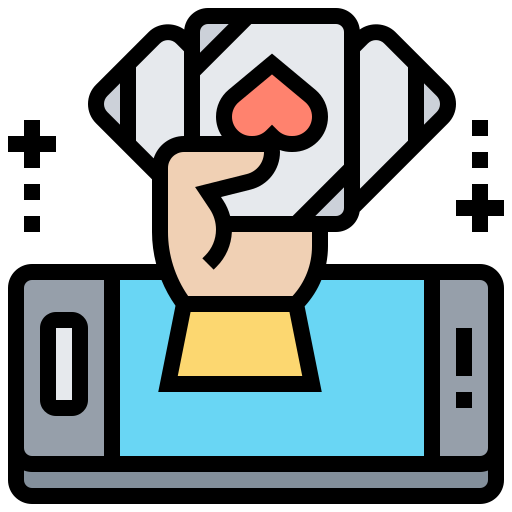
Understand How the Games Work
This will help prevent you from getting frustrated when things don’t go your way. For example, if someone else bets more than you do at Blackjack or Poker because they have better cards (or because they know something about those cards that you don’t), try not to take it personally – they’re just trying their best like everyone else.

Have Hobbies
If you’re feeling bored or anxious and want to turn to gamble to relieve those feelings, consider rekindling an old hobby instead. Try taking up painting again or playing chess with friends. These hobbies can help keep your mind occupied and help you feel more fulfilled without having to gamble.

Have Other Ways of Relieving Stress
If you turn to gamble because it helps relieve stress, consider finding other ways of coping with it. Try exercising regularly, taking long walks outside in nature, meditating, or even getting a massage. All of these activities can help relieve stress in healthy ways that don’t involve gambling.

Change Your Internet Behavior
Gambling sites do not have much of a control system and will bombard you with ads once they collect your browsing data. You can control this gradually by controlling your sign in frequency or limiting access to online social gambling groups, or just quitting the internet for a while.

Seek Professional Help
If none of the above methods work for your situation, consider seeking professional help from a therapist or counselor specializing in addiction treatment. These professionals can provide individualized counseling sessions designed specifically for your needs to get on track with a healthy lifestyle without having to gamble any more.
How to Help Someone with a Gambling Addiction
If you’re looking for ways to help someone who is struggling with a gambling addiction, here are some things you can do:
You may also be worried about a loved once gambling habit, you should first talk to them. Be honest about your feelings and let them know that you want to help.
You should also ensure that they understand that it’s not their fault—gambling disorder is a serious condition that can affect anyone.
When discussing the problem, focus on the solutions rather than the problems. It’s important for them to believe in your support and know that solutions are available.
- Be supportive. Try not to make judgments or give advice unless they ask for it.
- Encourage them to seek treatment. You can also recommend a therapist near their home if necessary; this may be helpful when they are ready to seek professional help for their addiction.
- Listen without judgment if they want to talk about their problems with gambling. Don’t try to solve the problem yourself—you aren’t qualified. Instead, please encourage them to get help from someone qualified and trained to treat addictions like this.
- Get ready for a range of emotions from the addict. They may be angry or frustrated, but also feel guilty or ashamed about their behavior. Be patient with them as they explore their options for treatment and recovery.
Gambling Addiction Resources
Gambling addiction resources are for those trying to overcome their gambling addiction. Gambling addiction is a serious and devastating disease that can affect anyone, so it’s important to be aware of the signs and symptoms to get help as soon as possible.
These resources can help you learn more about this condition and how to overcome it if you are struggling with it yourself. Many different types of resources are available online, including informational websites, support groups, and even treatment options.
There is hope if you or someone you know is struggling with a gambling addiction. You can find help through these sites:
National Council on Problem Gambling
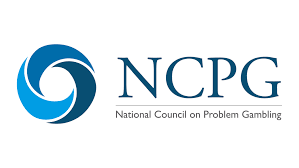
National Council on Problem Gambling They have a 24-hour functional hotline. You can also reach them via chats and texts. The available resources include educational articles and newsletters on preventing, controlling, and overcoming gambling problems. They also educate you on how problem gambling affects your finances and relationships.
Connecticut

Connecticut’s Official State Website is a great resource for those concerned that their loved ones may have a problem with drugs or alcohol, including information on how to help them get help from professional treatment centers. It also has links to various training manuals and articles on gambling behavior.
HelpGuide.org

HelpGuide.org dwells on gambling addicts and problem gambling, offering a helpline for those struggling with problem gambling and information about treatment centers and support groups around the country. They are equipped with global hotlines and contacts in countries like the US, UK, Australia, and Canada. They also have links to top sites like Gam-Anon.